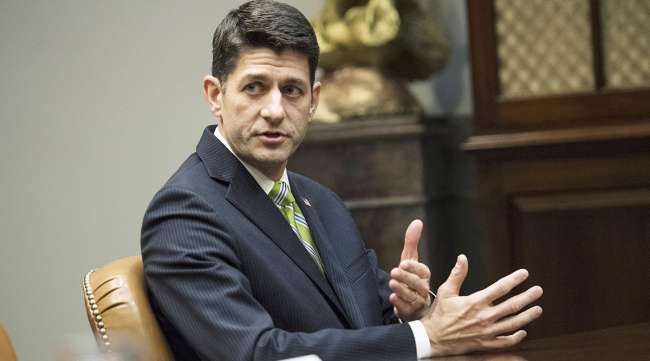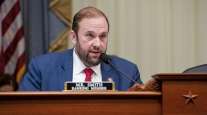Senior Reporter
Congress to Rely on Stopgap Funding Bill, Speaker Ryan Says

Amid recent failed attempts by party leaders to negotiate funding parameters for fiscal 2018, Congress will opt for a short-term measure designed to avoid a government shutdown, House Speaker Paul Ryan (R-Wis.) said Nov. 30.
Government funding expires Dec. 8, and policymakers on the appropriations committees are signaling to their colleagues to prepare themselves to consider a continuing funding measure that would keep federal agencies operating for several more weeks.
“We’re going to obviously have to have a short-term [continuing resolution],” Ryan told reporters on Capitol Hill. He would not confirm the duration of the short-term funding measure.
Ryan’s senate counterpart, Majority Leader Mitch McConnell (R-Ky.), indicated he would schedule debate on a short-term funding bill, as well, in time to avoid a shutdown. Those procedures in the upper chamber would need to commence several days prior to Dec. 8 due to longstanding procedures.
The White House said it would lean toward enacting a continuing resolution rather than forcing negotiations on a long-term deal prior to the holidays.
Continuing resolutions maintain the status quo on federal funding. Regulatory updates that would be set in motion in long-term funding bills would be sidelined if a short-term measure is enacted. For instance, American Trucking Associations has urged policymakers to attach in long-term funding legislation a provision guaranteeing uniformity across the country of meal and rest break rules for truck drivers.
Complicating year-end funding negotiations is the conservative Republican House Freedom Caucus, which has not announced its position on the continuing resolution.
Also, Democrats are insisting on a debate on immigration policy, and lawmakers from areas affected by hurricanes are urging disaster relief. Puerto Rico Gov. Ricardo Rosselló (R) and Resident Commissioner Jenniffer González-Colón, a non-voting Republican member of Congress, requested $94 billion in recovery relief.
The White House’s budget arm dismissed the request and called on Congress to approve $44 billion for hurricane response efforts. Republicans from Texas and Florida called the White House proposal inadequate.




